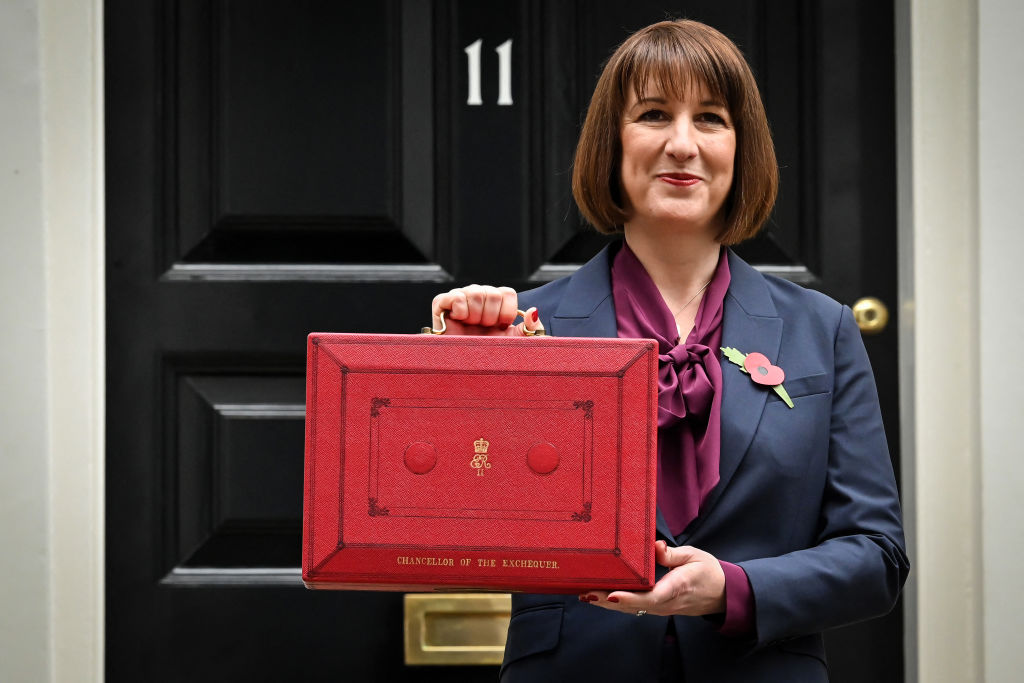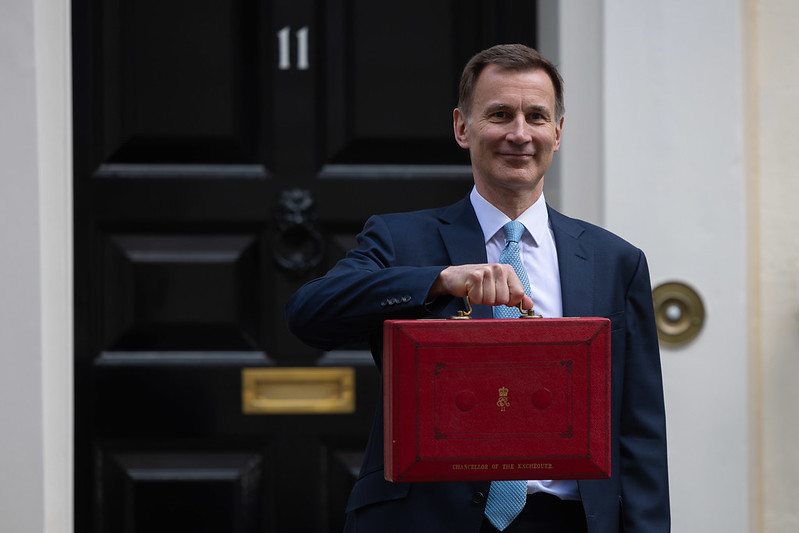The pros and cons of the new state pension
A new flat-rate state pension has been unveiled to replace the existing muddled arrangements. Merryn Somerset Webb explains what the changes mean for you.

Get the latest financial news, insights and expert analysis from our award-winning MoneyWeek team, to help you understand what really matters when it comes to your finances.
You are now subscribed
Your newsletter sign-up was successful
Want to add more newsletters?

Twice daily
MoneyWeek
Get the latest financial news, insights and expert analysis from our award-winning MoneyWeek team, to help you understand what really matters when it comes to your finances.

Four times a week
Look After My Bills
Sign up to our free money-saving newsletter, filled with the latest news and expert advice to help you find the best tips and deals for managing your bills. Start saving today!
This week something amazing happened. The government introduced a policy that no one has found a good way to criticise: the new flat-rate state pension. The idea is that a flat rate of around £144 (rising with inflation) will replace all existing state pension payments, creating what pretty much every commentator refers to as "simplicity and certainty". It gets rid of confusions surrounding the current mix of the basic state pension and the earnings-related state pensions (under which none of us have a clue what we're due).
It's also set just above the pensions credit level, thereby getting rid of a raft of boring benefits means-testing. And it's fairly generous. According to numbers from Hargreaves Lansdown, a payment of £144 a week is the effective equivalent of a private-sector pension pot of around £206,000 the sum currently needed to produce an annuity for a similar amount.
That all sounds nice. But it is, of course, not as straightforward as it sounds. The key point is that £144 is not actually a flat rate. It is the maximum payment you can get. And to get it you need to have been paying national insurance (NI) contributions for 35 years (just now you need to have only 30 years under your belt to get the maximum).
MoneyWeek
Subscribe to MoneyWeek today and get your first six magazine issues absolutely FREE

Sign up to Money Morning
Don't miss the latest investment and personal finances news, market analysis, plus money-saving tips with our free twice-daily newsletter
Don't miss the latest investment and personal finances news, market analysis, plus money-saving tips with our free twice-daily newsletter
If you have under ten years of contributions, you get nothing. Between ten and 35, you get a percentage of the "flat rate" although you should be able to buy extra years. On the plus side (sort of), the state pension age is rising fast, so you're likely to have plenty of time to rack 35 years up: I'd expect to see the state pension age hit 70 back to where it was in 1909 long before I hit 65, in which case I will get the full flat rate (hooray).
The new system will also run in tandem with the old one for a long, long time: those hitting retirement age from 2017 will come under the new, while everyone else will come under the old. Assume life expectancy of 85 or so, and you will see that it will be a good 20 years before the new system stands alone. In an extra complication, anyone who has been forecast to get more than £144 in state pension at the moment (thanks to the second state pension, etc) will still get it.
A final point to note? This is effectively a progressive tax shift. The low paid, with 35 years of contributions, will get the full flat rate regardless of how much NI they have paid. And the highly paid? They give up the second state pension which can see them get up to £250 a week, if they contract out of it at the moment.
They will also have to start paying extra NI from 2017 (an effective tax rise of 1.4% on relevant earnings). And if they retire early, they may well find they don't even get the full flat rate either. That's going to be irritating for them but over the long term, it is also going to be good for Britain's deficit-reduction plan.
Get the latest financial news, insights and expert analysis from our award-winning MoneyWeek team, to help you understand what really matters when it comes to your finances.

-
 How a ‘great view’ from your home can boost its value by 35%
How a ‘great view’ from your home can boost its value by 35%A house that comes with a picturesque backdrop could add tens of thousands of pounds to its asking price – but how does each region compare?
-
 What is a care fees annuity and how much does it cost?
What is a care fees annuity and how much does it cost?How we will be cared for in our later years – and how much we are willing to pay for it – are conversations best had as early as possible. One option to cover the cost is a care fees annuity. We look at the pros and cons.
-
 The most and least expensive countries to be an expat in 2025
The most and least expensive countries to be an expat in 2025With some Brits fleeing the country to avoid seemingly ever-increasing taxes, we look at the most and least expensive countries to emigrate to.
-
 What has changed with employers’ National Insurance – and how will it impact you?
What has changed with employers’ National Insurance – and how will it impact you?Will you feel the effects of the National Insurance hike, as businesses warn of redundancies, smaller pay rises and higher inflation?
-
 Conservatives pledge to cut National Insurance again – how much could you save?
Conservatives pledge to cut National Insurance again – how much could you save?News A 2p reduction in National Insurance is a key feature of the Tory’s general election manifesto.
-
 Workers set for new national insurance tax cut – how much will you save?
Workers set for new national insurance tax cut – how much will you save?News National insurance tax rates have fallen but frozen allowances may limit the benefits.
-
 Budget 2024: National Insurance cut, a new British ISA, and reform of the child benefit charge - here’s what has been announced
Budget 2024: National Insurance cut, a new British ISA, and reform of the child benefit charge - here’s what has been announcedThe chancellor has announced a host of changes, including cutting National Insurance again, and abolishing some tax reliefs. Here’s how the Budget will affect your finances.
-
 Brace for a year of tax rises
Brace for a year of tax risesThe government is strapped for cash, so prepare for tax rises. But it’s unlikely to be able to squeeze much more out of us.
-
 Topping up state pension to become easier with new online tool
Topping up state pension to become easier with new online toolAnyone looking to buy extra National Insurance contributions and boost their state pension currently has to make multiple phone calls - but a new online tool is on its way.
-
 Gender pensions gap - are women paying a parenthood penalty?
Gender pensions gap - are women paying a parenthood penalty?Trade body warns women face serious obstacles to saving enough for retirement as the gender pensions gap continues. Is raising a family having a detrimental impact on our pension pot?